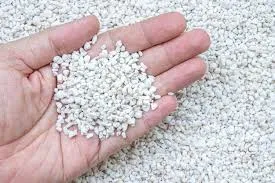Sep . 14, 2024 23:29 Back to list
exhaust pipe insulation material suppliers
Understanding Exhaust Pipe Insulation Materials and Suppliers
Exhaust pipe insulation is critical in ensuring optimal performance and safety in various vehicles and industrial applications. The materials used for insulating exhaust pipes serve multiple purposes they reduce heat loss, protect surrounding components from high temperatures, and minimize noise emissions. As a result, selecting the right insulation material is paramount, not just for performance enhancements but also for safety and longevity.
Importance of Exhaust Pipe Insulation
The primary function of exhaust pipe insulation is to retain thermal energy within the exhaust system. This helps improve exhaust gas flow, leading to better engine efficiency. By keeping the gases hotter as they pass through the system, the insulation reduces the likelihood of condensation and harmful deposits forming inside the pipes. Furthermore, high-quality insulation helps in protecting sensitive components and nearby materials from the high temperatures emitted by the exhaust system.
Heat-resistant insulative materials can also significantly lower the noise generated by exhaust systems, leading to a more comfortable driving experience and improved acoustics in industrial settings.
Common Insulation Materials
Several materials are typically used for exhaust pipe insulation
1. Fiberglass This is one of the most common insulation materials for exhaust systems due to its high-temperature tolerance and excellent insulation properties. Fiberglass blankets can withstand continuous temperatures of up to 1000°F (537°C), making them suitable for a wide range of applications. They are also lightweight, which is an added benefit in automotive design.
exhaust pipe insulation material suppliers

2. Ceramic Fiber Known for its superior heat resistance, ceramic fiber is often used in high-performance scenarios. This material can withstand temperatures exceeding 2000°F (1093°C) and is often used in racing applications and high-performance vehicles that require extreme thermal management.
3. Calcium Silicate This type of insulation is noted for its structural strength and thermal resistance. Calcium silicate insulation products are often used in industrial applications and can endure temperatures up to 1200°F (649°C). Their durability makes them suitable for various industrial exhaust systems.
4. Mineral Wool Mineral wool, made from natural rock or byproducts, provides excellent thermal insulation. It is often more environmentally friendly compared to synthetic options, offering good insulation and fire-resistance properties.
Choosing the Right Supplier
When searching for exhaust pipe insulation material suppliers, it is critical to consider their reputation, product range, and the technical support they offer. Key factors include
- Quality Assurance Look for suppliers that provide high-quality, tested products that meet safety and industry standards. - Customization Some applications may require custom sizes or materials. An excellent supplier will offer customization options to suit specific needs. - Technical Support A knowledgeable supplier can guide you in selecting the appropriate materials based on your application.
Conclusion
In conclusion, insulation materials for exhaust pipes play an essential role in enhancing performance, safety, and comfort. With various materials available in the market, understanding their properties and consulting with reputable suppliers is crucial for ensuring the best results in thermal management and noise reduction. Proper insulation not only enhances engine efficiency but also contributes to the longevity of exhaust systems and the safety of surrounding components.
-
Fe-C Composite Pellets for BOF: Enhance Steelmaking Efficiency
NewsAug.07,2025
-
Eco-Friendly Granule Covering Agent | Dust & Caking Control
NewsAug.06,2025
-
Fe-C Composite Pellets for BOF: High-Efficiency & Cost-Saving
NewsAug.05,2025
-
Premium Tundish Covering Agents Exporters | High Purity
NewsAug.04,2025
-
Fe-C Composite Pellets for BOF | Efficient & Economical
NewsAug.03,2025
-
Top Tundish Covering Agent Exporters | Premium Quality Solutions
NewsAug.02,2025
